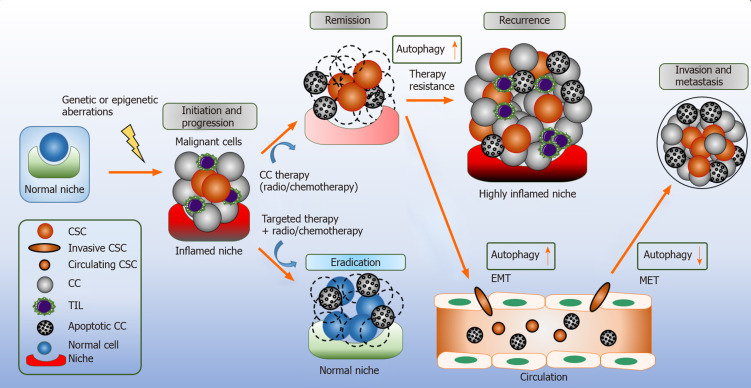Figure 2.
Autophagy in cancer stem cells. Autophagy has a context dependent role in cancer. Cancer stem cells (CSCs) are a heterogeneous collection of different cells types that acquire genetic aberrations/epigenetic modifications and retain the ability to undergo extensive cell proliferation, retain stemness and give rise to differentiated diverse cancer cell lineages. Potentially the CSC niche will provide protective mechanisms for the disease propagation. Autophagy promotes invasion of cancer stem cells through TGF-1β dependent epithelial-mesenchymal transition; however, during mesenchymal-epithelial transition autophagy is downregulated as the circulating CSCs are scavenging an organ to seed for metastasis. Moreover, autophagy reinforces the resilience of CSCs plasticity, remodeling the immunosurveillance and facilitating the acquisition of resistance to conventional chemotherapies which contribute to cancer relapse. By targeting autophagy, cancer cells and CSCs are sensitized to enhancing the efficacy of chemotherapy agents and reducing their toxicity and disease relapse. CSC: Cancer stem cell; CC: Cancer cell; EMT: Epithelial-mesenchymal transition; MET: Mesenchymal-epithelial transition; TIL: Tumor-infiltrating lymphocytes.

